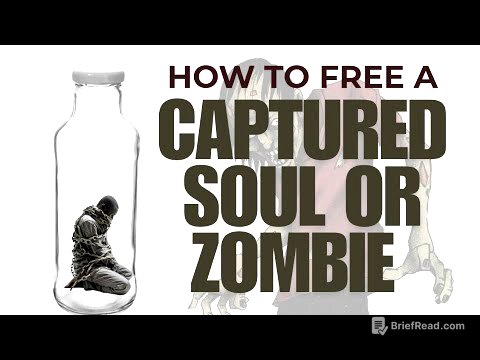TLDR;
This video analyses the multifaceted challenges confronting Israel, suggesting a potential decline in its dominance. It highlights internal political fragmentation, international isolation, economic vulnerabilities, the rise of resistance movements, and social unrest as key factors contributing to this shift. The video underscores that Israel's over-reliance on military force and its failure to address underlying political and humanitarian issues have led to strategic failures and a weakening of its global standing.
- Internal political divisions and leadership challenges are undermining national unity.
- International support is waning due to concerns over policies and treatment of Palestinians.
- Economic vulnerabilities, including capital flight and declining investor confidence, pose a threat to long-term stability.
- Resistance movements are becoming more unified and capable, challenging Israel's military deterrence.
- Social unrest and an identity crisis are deepening internal divisions.
Introduction & Today’s Global Storm ⚡ [0:00]
The video introduces the idea that the decline of a powerful nation often begins subtly, not with overt conflict, but with internal fractures and ignored warning signs. It asserts that Israel is currently at a critical juncture, facing internal political fragmentation, shifting international sentiment, and economic vulnerabilities. The video suggests that these issues are not isolated incidents but rather indicators of a larger transformation that could significantly alter Israel's position on the global stage.
Jack Ma’s Wake-Up Call to the World 🌎 [1:45]
The internal political fragmentation within Israel is identified as a critical indicator of national instability. The country has experienced repeated elections, unstable coalition governments, and deep divisions among major political factions. These divisions stem from fundamental disagreements about the state's identity, direction, and structure, particularly concerning judicial reform, which has sparked massive protests. The leadership faces legal controversies and eroding public trust, while polarization between right-wing and left-leaning factions paralyses governance, hindering the ability to address national crises effectively.
The Power Shift: From Influence to Isolation 🕊️ [4:30]
Israel's international isolation and the gradual loss of Western support are becoming increasingly evident. Traditionally, Israel has relied on allies like the United States and European nations for diplomatic cover, military aid, and economic partnerships. However, global sentiment is shifting away from unconditional backing towards greater scrutiny of Israel's policies, particularly regarding its treatment of Palestinians. This shift is driven by a new generation of Western political leaders and citizens who are questioning Israel's actions and calling for accountability in international forums.
Economic Unrest and Internal Discontent 📉 [7:00]
Israel's economic vulnerability and signs of capital flight pose a serious threat to its long-term stability. Despite its reputation as a startup nation with technological prowess, recent political instability, judicial overhauls, and social unrest have undermined investor confidence. Tech giants and venture capital firms are shifting operations abroad, leading to a significant outflow of financial resources and expertise. International credit agencies have issued warnings about Israel's economic outlook, citing governance concerns, legal unpredictability, and geopolitical tensions.
Global Reactions: Silence or Support? 🌐 [10:15]
The rise of resistance fronts across the region presents a growing strategic dilemma for Israel, challenging its military deterrence doctrine. Groups like Hamas in Gaza, Hezbollah in Lebanon, and newer factions in Syria and the West Bank have evolved into increasingly structured and capable forces. Backed by Iran, these groups utilise advanced technology, coordinated command systems, and growing regional alliances to conduct sustained military operations. Israel, accustomed to swift military responses, now faces adversaries that are adapting and expanding their capabilities.
Israel’s Allies Start to Fracture 🔥 [13:40]
Social unrest and an intensifying identity crisis within Israel are deepening internal divisions and threatening national cohesion. The country, once united by a common narrative of survival, is now fragmented along ethnic, religious, ideological, and socio-economic lines. A significant rift exists between secular and religious communities, with secular Israelis favouring liberal democratic values clashing with ultra-Orthodox groups seeking greater religious control over public life. Ethnic divisions persist between Ashkenazi and Mizrahi Jews, compounded by the marginalisation of Arab citizens who face discrimination in various aspects of life.
A New World Order Rising 🚨 [16:25]
Israel's repeated strategic failures and ongoing military overreach have exposed the limits of its deterrence-based doctrine. Despite possessing an advanced military, Israel has struggled to translate tactical victories into long-term strategic success. Multiple military campaigns in Gaza, Lebanon, and Syria have ended inconclusively, often resulting in international backlash and civilian casualties without achieving sustainable peace. This over-reliance on military force has led to diminishing returns, with resistance factions emerging more resilient after each conflict.
Moral Authority & Collapse of Narrative 🕊️ [19:00]
The psychological toll on Israeli society is mounting due to constant mobilisations, fear of attacks, and uncertainty about future escalations. Soldiers and reservists, particularly from secular sectors, are voicing moral objections and psychological exhaustion. Globally, Israel's military actions are increasingly viewed as disproportionate, eroding its moral standing and soft power. The failure to balance military strength with political vision has exposed a fundamental flaw in its long-term strategy, risking further isolation and alienating potential allies.
Jack Ma’s Message of Strength & Unity 💪 [21:30]
The convergence of internal political chaos, global isolation, economic fragility, the rise of unified resistance, deep social unrest, and repeated strategic failures paints a clear picture: the foundations of Israel's dominance are no longer secure. This observation is grounded in fact, not ideology, highlighting that no nation can sustain itself when it neglects unity, justice, and self-reflection. The video suggests that the transformation Israel is undergoing could lead to either redemption or further ruin, depending on the choices made in this critical moment.
Final Thoughts: What You Must Learn 🧠 [23:15]
The video concludes by encouraging viewers to continue seeking truth, pushing for justice and understanding, and questioning the status quo. It emphasises that the future is not predetermined and that individual voices matter in shaping a more just and peaceful world.









